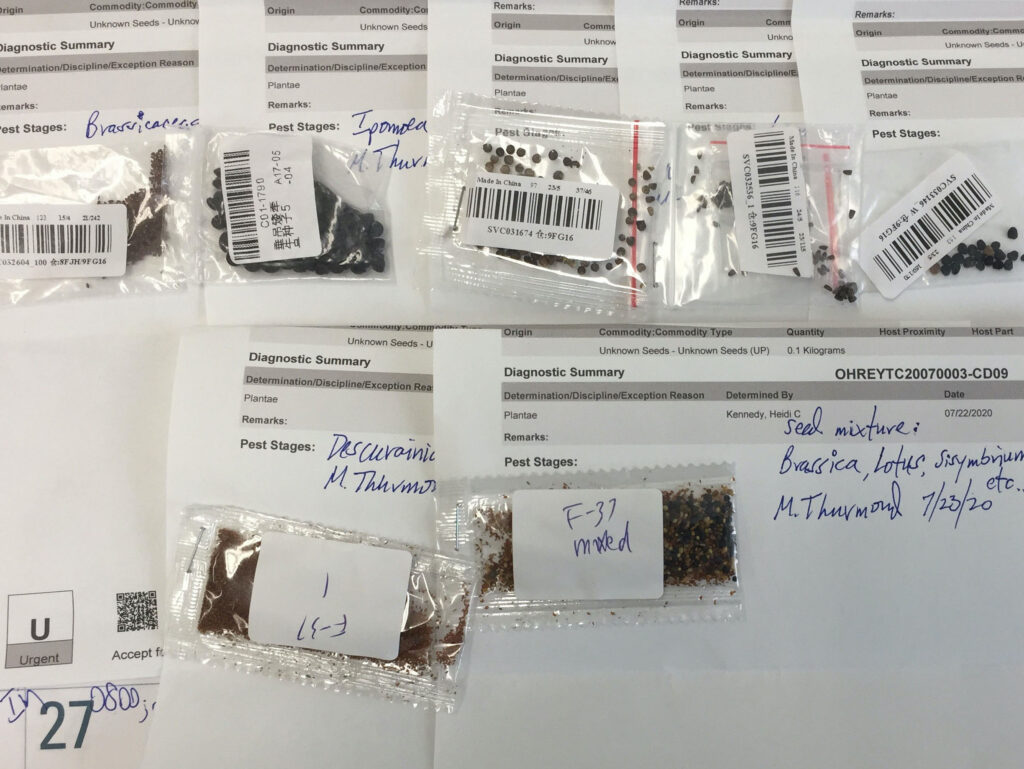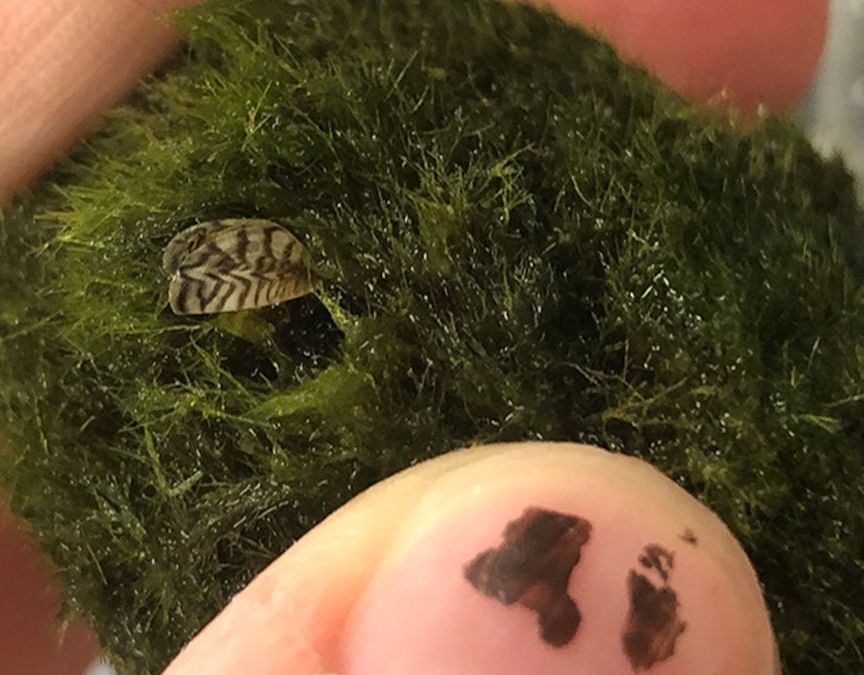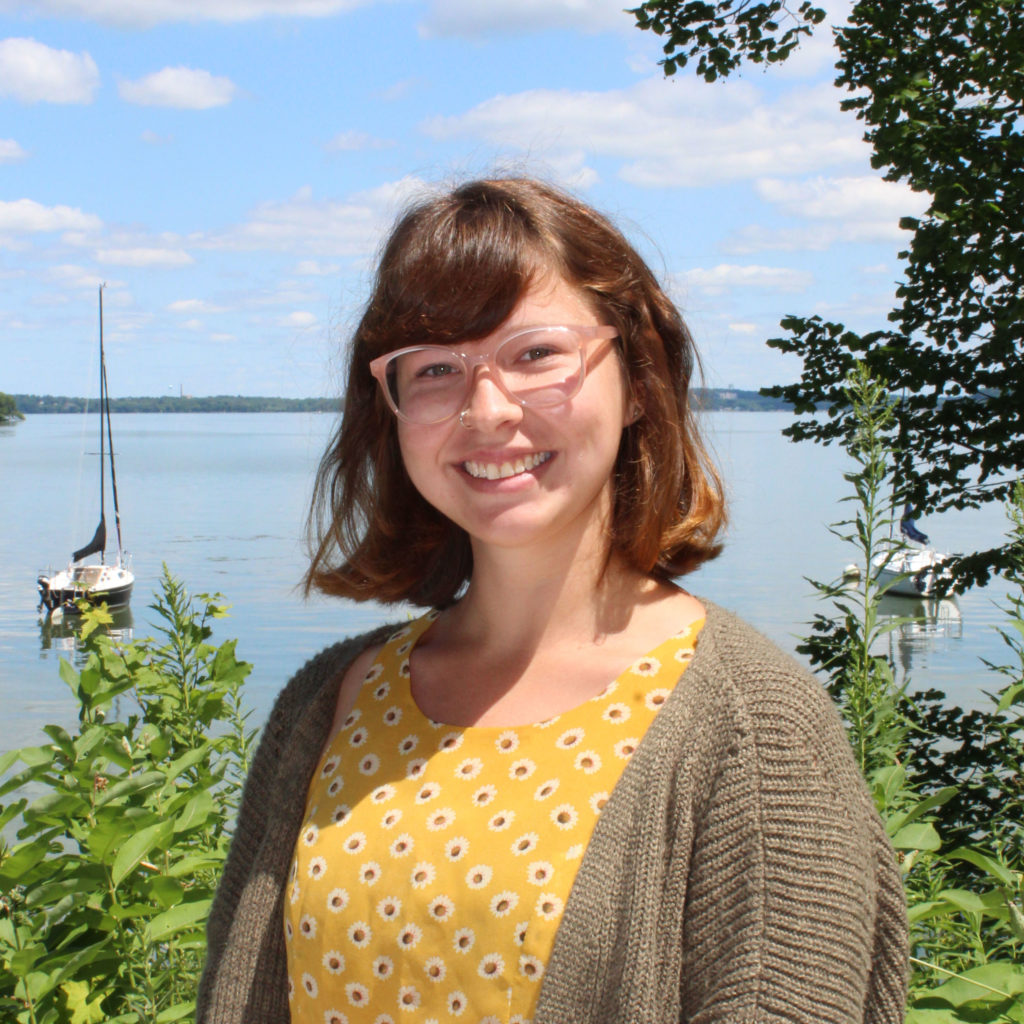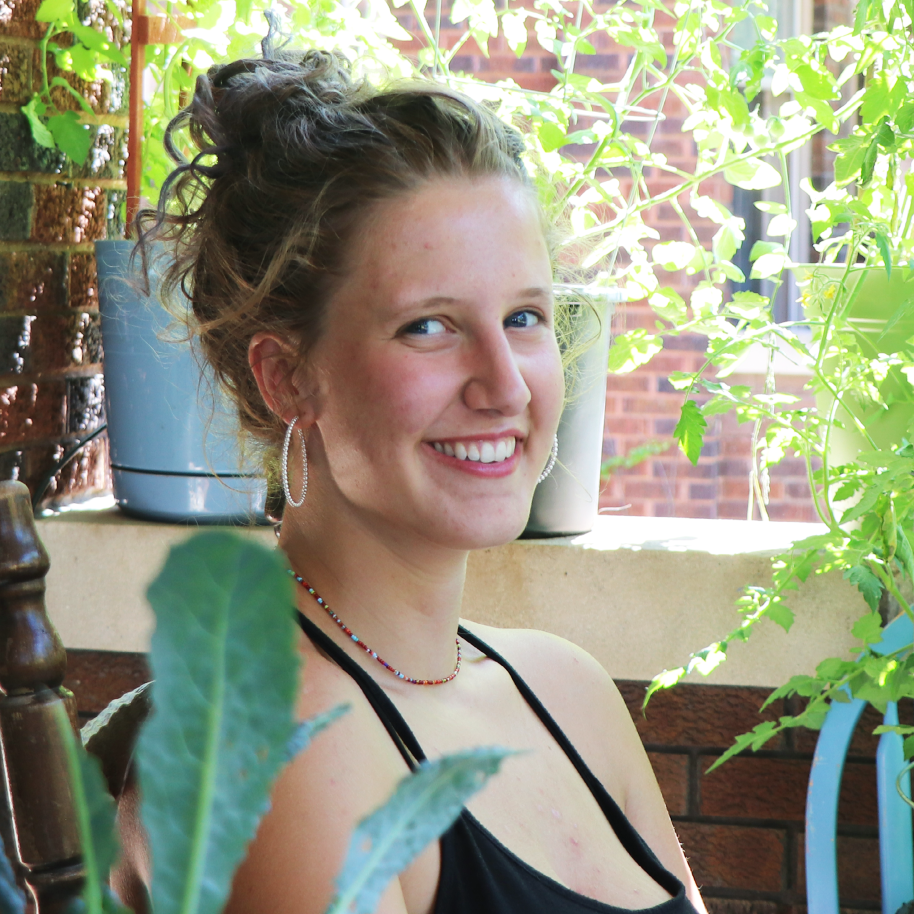Episode 18, June 16, 2021
Moss balls and mystery seeds
In Moss balls and mystery seeds, we dive deep into two news stories that involved some unexpected international hitchhikers.
In the summer of 2020, individuals all over the United States started receiving random packages of unsolicited and unidentified seeds. Why was this happening? Were these seeds noxious or invasive? While thousands of packages of seeds piled up for investigation at his U.S. Department of Agriculture office, Christopher Deegan tried to answer these questions.
Less than a year later in the spring of 2021, pet stores around the country discovered that the moss balls on their shelves carried a notorious aquatic hitchhiker. Amy Kretlow remembers visiting her local Sheboygan, Wisconsin, pet store only to find zebra mussels on the store’s moss ball stock. Amy spent months helping to deal with this first-of-its-kind international crisis.

Unsolicited seeds came in small international mail envelopes. Inside, they contained a tiny Ziplock bag of seeds. Sometimes the label read “squash,” “corn” or “tomato.” Even stranger, sometimes the envelopes would be labeled “earrings” or “jewelry.”

Introduced zebra mussels feed by voraciously filtering tiny plants and algae out of the water. In some conditions, zebra and quagga mussels can now filter all of Lake Michigan in less than two weeks, leaving other lake dwellers, like larval fish, scrambling for food. Photo: U.S. Geological Survey.
Thanks to our guests
Christopher Deegan, U.S. Department of Agriculture
Wesley Daniels, U.S. Geological Survey
Amy Kretlow, Wisconsin Department of Natural Resources
Amy McGovern, U.S. Fish and Wildlife Service
Credits

Bonnie Willison | Host
Video Producer
What I do at Sea Grant
As the videographer and digital storyteller, Bonnie uses her video and animation skills to showcase the stories of Wisconsin Sea Grant.

Sydney Widell | Host
Student podcast producer
What I do at Sea Grant
Sydney brings her background in geography and journalism to Wisconsin Sea Grant, where she is the co-producer and co-host of Introduced.


